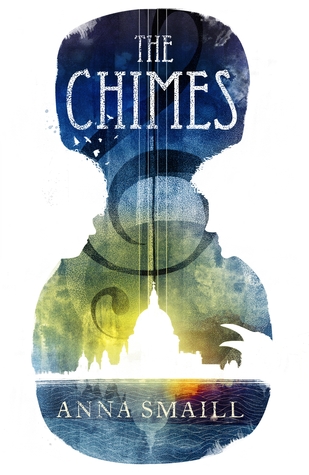As a child she had kept caterpillars in a glass jar. Slightly hairy, black and white curly things she’d found on the blackcurrant bushes on the waste ground where rumour had it more swings were to be build, but which continued to house the village’s Guy Fawkes Night bonfire. Not at all like the normal green ones found in the garden. She’d looked through her Enid Blyton books and some encyclopaedias from the library to try and find out what they were called when after a few weeks they turned into beautiful black, white and orange moths. Or were they butterflies? Butterflies were always prettier colours than moths with their drab greys and browns. Pests according to her dad, eating his peas and cabbages, privet hedges and lilacs. Magpie moths. Like the birds. Thieves.
One for sorrow
Two for joy
Three for a girl
Four for a boy
Five for silver
Six for gold
Seven for a secret never to be told
Perhaps they’d spin some silk? She always took care to put a few of the leaves of the currant bushes with them in the jam jar, as large as she could get from mum’s collection. Her mother made jam. Lots of jam. In the summer the house was filled with its sweet smell, either in the kitchen as the sticky mix boiled away in the enormous jelly pan, or in her parent’s bedroom where the broom pole was laid to rest between two spare dining chairs with the jelly bag hanging from it so the jelly juices could drain through into the pan standing on the floor below leaving the coarse brown bag covered in a pink layer of spent bits of fruit. She was never tempted by those remnants. The texture of the bag gave her the creeps. But the spoonfulls of the jam left on a saucer to set by the back door, those were something else. As long as the wasps had not settled on them and got stuck. She’d been stung in the mouth on the way back from the village school one lunchtime, dragging her hand along the hedgerow singing away to herself. The bee, or wasp, had been disturbed and flew straight in, luckily stinging in front of her teeth not on her tongue. Sipping cold water through a straw for the rest of the day was the outcome as her face swelled up. Now she was afraid of being stung again and wouldn’t be for another 50 years.
But that hadn’t stopped her exploring the fields, the hedgerows, the back lanes, running wild around the farm, clambering into the rafters of the old part of the farmhouse, crawling down into the subterranean foundations on the building site, climbing trees and finding other peoples secret places. She’d found their hide. It was not like she imagined a hide to be, roughly strewn together from branches, twigs, bits of this and that, well camouflaged into the woodland so no one could see it. Somewhere you’d camp out with billy can and fire. No, this was a properly build hut. Probably Sue’s dad’s handiwork. She couldn’t imagine Nora’s dad, spending time doing that. There it was a child sized garden shed, complete with door, painted a bright apple green, with curtains at the windows, hidden by the summer growth on the bushes along the wild space between the farmer’s field behind her favourite climbing tree and the ends of the gardens of houses on the new estate which had sprung up surrounding the village. It looked just like a play house. Yes they were the sort of girls who liked to play house. She’d seen them disappear down that hedgerow from her perch high, unseen up the tree. What were they doing down there? When she went back the second time, hoping to catch them there, it lay in ruins. Somehow she knew. They’d been followed. She’d been followed. She’d led him straight to it. Wonton destruction, the bully. Not the worse of them though. Perhaps he’d had help, after all the hut had been well built, it wouldn’t have been that easy to pull down, much less trash the boards. How cruel and unnecessary! She’d never have done that. She just wanted to be friends.
She had been with Nora for a while, but then Sue came to the village and she lost her friend to the new girl. They all rushed to be friends with whoever was new. Not her. She preferred to watch and wait. Her friendship with Nora had spoiled, not only because Sue came, but because they were different. They had gone out walking one day, down the country lanes, up the hill past the farm, past the hut which her dad said used to be a workman’s lunch stop and which he often used as shelter when caught out in the rain. He’d sit there with his binocular’s watching the bridge being built. One of the largest in the world he’d told her. They continued down the other side of the hill. She’d been this far before but not Nora. She never went far from home. No sense of adventure. We’ll get lost. Just because you don’t know where you are doesn’t mean you are lost. We know how we got here, so we can go back the same way. Anyway this road comes out on the road near my uncle’s house so we just need to walk along a bit to the east find his road on the left and then come back north that way. A round trip. Easy. Nora had not been so keen. But on they walked, playing various games along the way, not seeing a soul. She broke of a grass leaf to make a whistle like she seen her dad do by making a small cut in its centre. Nora liked that and had tried to do the same but the leaf cut through her skin on her finger and made it bleed. Don’t worry, suck it to clean it, spit it out and tie a dock leaf over it. It’s only a cut. But Nora was having none of it crying that she wanted to go home. Disappointment because her friend had not enjoyed their big adventure, she also felt some self-pride that her understanding of the terrain had got them home. It was only geography and basic geometry after all, knowing your north from your south, your east from your west. Something all those walks with dad had taught her.
Those were her summers. Free to roam, to explore. Alone or with whoever was her current friend. But like the hatched moths, friendships bloomed then quickly faded, leaving her for new best friends, or when their parents moved away.
1132 words
© Sheila Ash, 21st June 2015
 The Illustrated Man
The Illustrated Man 
![share[1] share[1]](https://blogger.googleusercontent.com/img/b/R29vZ2xl/AVvXsEjWjPvFOLw-5UFBfWY6LOjuN9fqrRGpeDxw5XRvWKNsuKCK9DDEOIiqhT4AbkTC3JKAYxP-8SGZfDHS1w4z4MK7CVXaP_estvVLaZb2NQg12cixNUgfz1xmHxGn7HlL4tGv-i7tR16Nybs/?imgmax=800)
![220px-Hitchcock,_Alfred_02[2] 220px-Hitchcock,_Alfred_02[2]](https://blogger.googleusercontent.com/img/b/R29vZ2xl/AVvXsEj1k06KZ3lLWXB8YVv3qy7wpfIztlDt-ID77EYQzRRBtJCDZL7CFstK2prWDv3TkckfWsJJcSDbnu2naSaix3InaKd1OG5YZd0hApUvgQSuWmNq4oL-WjgWB6mwRwft1Pqazw_il74GKT4/?imgmax=800)




 The Illuminations
The Illuminations










 Monastery
Monastery

